- Details
Bar Council Chair proposes change to when individuals are called to the Bar
The barristers’ profession should call people to the Bar only when they have completed pupillage, the Chair of the Bar, Nick Vineall KC, has suggested.
The present system means that the title of barrister is given to people who are not entitled to practise as barristers, which Vineall argued creates a “risk of confusion for clients” and is “not in the public interest”.
Vineall pointed to the fact that for every barrister with a practising certificate, there were two who have never been entitled to a practising certificate.
He added that “of all the people in the world who are entitled to tell you they are barrister called to the Bar of England and Wales, only one in four has a practising certificate.”
He also highlighted the “financial burden” on practicing barristers, which a large number of unregistered barristers can create, due to the cost of regulation.
Vineall said: “My own view is that we should call people to the Bar only when they have satisfactorily completed pupillage, with some sort of provisional call or provisional practising certificate to cover the second six. The Bar Council strongly supports such a change… We have this obvious anomaly of conferring the title barrister before the qualification process is complete.
“I fear that if we do nothing the problem will get worse, that it will become increasingly difficult to resolve, and that it poses a long-term risk to the profession. The problem is readily fixable, and it should be fixed now. We must all rise to the challenge.”
The Chair’s speech, ‘The bar of 2043: Thoughts for the future’, explored what the Bar would look like in 20 years’ time, and the factors that could change what practice at the Bar will look like: artificial intelligence (AI), mandatory use of alternative dispute resolution, remote hearings, hybrid working, and changing business models for chambers.
On AI, Vineall reassured delegates that he “very much doubts” the profession will be replaced by robots, Chatbots or AI in the next 20 years.
However, he noted that Large Language Models (LLMs), of which Chat GPT is the best known, have already been used – and misused – in litigation. He advised of the importance to understand “both their capabilities and their limitations”, and to engage with developments in new technology.
Vineall said: “We need to make it our business to understand what AI can do, and to understand enough about how it does it, so that we can appreciate both its capacities and its weaknesses.
“A head-in-the-sands approach is not remotely advisable, but neither should you be asking GPT to settle your skeleton arguments.”
Lottie Winson
Lawyer - Property
Contracts & Procurement Lawyer
Trust Solicitor (Employment & Contract Law)
Trust Solicitor (Public & Healthcare Law)
Senior Lawyer - Contracts & Commercial
Locums
 Institutional landlord series: Possession – High Court Enforcement - 5 Pump Court
Institutional landlord series: Possession – High Court Enforcement - 5 Pump Court
22-10-2025 4:00 pm
Online (live)
 Institutional landlord series: Costs Recovery and Legally Aided Parties - 5 Pump Court
Institutional landlord series: Costs Recovery and Legally Aided Parties - 5 Pump Court
05-11-2025 4:00 pm
Online (live)
 HMPL Building Blocks: Tenancy Management – Assignment, Mutual Exchange and Succession - Devonshires
HMPL Building Blocks: Tenancy Management – Assignment, Mutual Exchange and Succession - Devonshires
12-03-2026
Online (live)
 Unpicking the Procurement Act Episode 2: Exclusion and Debarment - 39 Essex Chambers
Unpicking the Procurement Act Episode 2: Exclusion and Debarment - 39 Essex Chambers
On Demand
Online (pre-recorded)
 Unpicking the Procurement Act Episode 1: Overview and New Procedures - 39 Essex Chambers
Unpicking the Procurement Act Episode 1: Overview and New Procedures - 39 Essex Chambers
On Demand
Online (pre-recorded)
 Unpicking the Procurement Act Episode 3: Contract Modification - 39 Essex Chambers
Unpicking the Procurement Act Episode 3: Contract Modification - 39 Essex Chambers
On Demand
Online (pre-recorded)
 Unpicking the Procurement Act Episode 4: Challenges and Remedies - 39 Essex Chambers
Unpicking the Procurement Act Episode 4: Challenges and Remedies - 39 Essex Chambers
On Demand
Online (pre-recorded)

































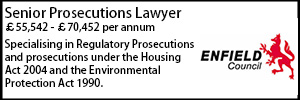





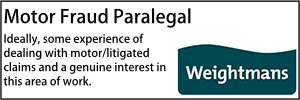








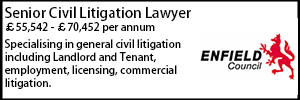
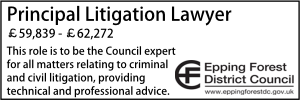


















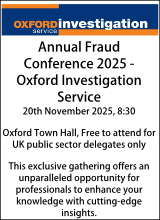

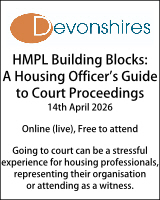





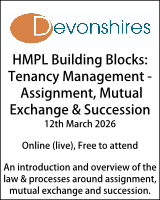
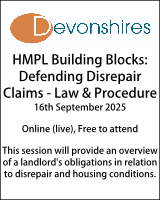
 CUBAS Comprehensive Training & Licencing (Swindon), October 2025
CUBAS Comprehensive Training & Licencing (Swindon), October 2025 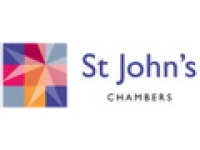 Property Law Roadshow 2025 - Cardiff - St John's Chambers
Property Law Roadshow 2025 - Cardiff - St John's Chambers  Planning Day 2025 - Cornerstone Barristers
Planning Day 2025 - Cornerstone Barristers  Annual Fraud Conference 2025 - Oxford Investigation Service
Annual Fraud Conference 2025 - Oxford Investigation Service  Ivy Legal - Certificate in Planning Enforcement
Ivy Legal - Certificate in Planning Enforcement